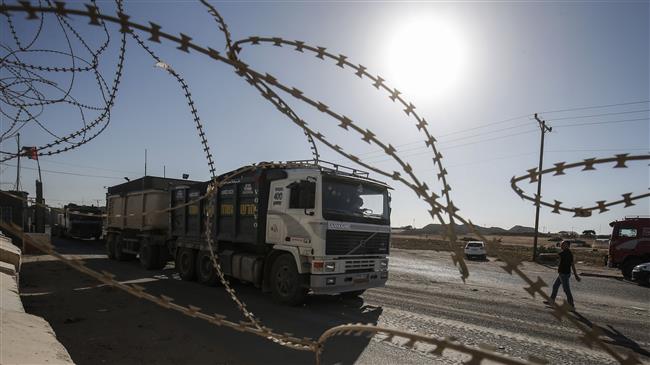
RNA - It added that since September 2000, citing security concerns, Israel has tightened restrictions on Palestinian access to land located along the Northern and Eastern side of the perimeter fence in Gaza, which have fluctuated over time, WAFA reported.
At its widest extent, the report stated, the access restricted area included a 'no go area’ reaching up to 500 meters on the Gaza side of the fence, and a 'high risk area’, based on Palestinian risk perceptions, extending from the 'no go area’ up to 1,500 meters from the fence.
According to the report, while Palestinian agricultural activity in the 'high risk’ areas has increased in recent years, farmers’ concerns about their personal safety and livelihood investment remain.
Since 2014, the Israeli military has conducted periodic aerial spraying of herbicides, impacting farmland on the Gaza side of the fence. A spraying operation in January 2018 affected some 550 acres of agricultural lands belonging to 212 farmers, with an estimated loss of $1.3 million, according to Palestinian Ministry of Agriculture report.
Two farmers have also been killed in proximity to the fence since 2014 and at least 26 have been injured, excluding the over 155 killed and 17,000 injured by Israeli gunfire along the border fence in the March of Return rallies that started on March 30.
According to Fars News Agancy, farmers fear that plants above a certain height, greenhouses, trees, fences and other infrastructure, which could impair the visibility of Israeli forces, are still not permitted in the 'high risk’ area. In practice, farmers, the private sector and donors remain reluctant to invest in higher-value crops in areas close to the fence, due to the lack of clarity and the risk of potential loss.
There is also a reluctance to invest in livestock production, agricultural roads, and irrigation systems in areas up to 1,500 meters from the fence. These areas remain largely off-s for housing, services and infrastructure needs.
Under international law, the report noted, while addressing its military and security needs in areas along the perimeter fence, Israel is obliged to avoid causing disproportionate harm to the lives and livelihoods of the Palestinian population.
OCHA stressed that Israel should also respect the Palestinians’ right to life, to freedom of movement, to freedom of assembly and expression, and to an adequate standard of living.
847/940